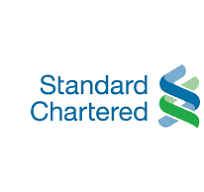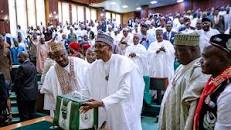Standard Chartered Bank has projected that ongoing economic reforms in Nigeria hold the potential of improving Nigeria’s credit outlook, bolster the nation’s macroeconomic stability and create investment opportunities this year.
The Global Chief Investment Officer at Standard Chartered Bank’s Wealth Management unit, Mr. Steve Brice, made this disclosure while presenting the Bank’s ‘Global Market Outlook 2024’ tagged ‘Sailing with the Wind’ in Lagos.
Specifically, the banker said: “In Nigeria, an ambitious reform agenda is expected to support macro stabilization and unlock the country’s significant investment potential.
FX reforms, cash reforms, and other economic reforms being undertaken by the present Government in Nigeria could help attract capital inflows and gradually address FX liquidity challenges.
These reforms are expected to support a turnaround in Nigeria’s credit story in 2024”, Brice added
He also predicted that the African Continental Free Trade Area (AfCFTA) agreement, linking 1.3 billion people across 55 countries with a combined GDP of US$3.4 trillion, would create the largest free trade area in the world when measured by the number of countries participating.
Speaking on the rising general price level in the global economic landscape, the investment banker stated that the bank’s findings indicated that the inflation was expected to slow down in 2024 in most key economies.
According to him, base effects, recently receding energy price inflation, and the lagged effects of policy tightening will help to slow price pressures.
He further clarified: “Oil prices are a key source of upside inflation risk. Analysts expect the average Brent crude oil price to fall to $81/b in December 2024 and fall below $80/b in 2nd Half of 2025 due to expected inventory builds in 2025.
However, recent activity in the Red Sea causing further tension in the Middle East could see a near-term upside to the risk premium.
Despite expectations of slightly softer global growth in 2024, support for oil is still considerable”, Brice added.
He also projected that global oil demand would remain strong, spurred by a strong growth in Asia but cautioned that any escalation of geopolitical risks could put further upward pressure on prices.
On global financial market performance in 2024, Brice said the bank expected FOMC and UST rates to drive the overall financial market performance in 2024, incorporating a greater probability of rate cuts.
He expatiated: “Furthermore, we will witness a potential unwinding of inflation fears, with an expected shifting of 10-year UST yields from bear steepening to bull steepening. We also predict that USD will depreciate – but this will be constrained.
We will also see more commentary around whether China’s disinflation will impact the US and Europe – although early signs expect China rates to be lower for longer.
All signs point to 2024 being another year defined by periodic volatility shocks due to geopolitics, elections, and global slowdown risk”, the banker predicted.




